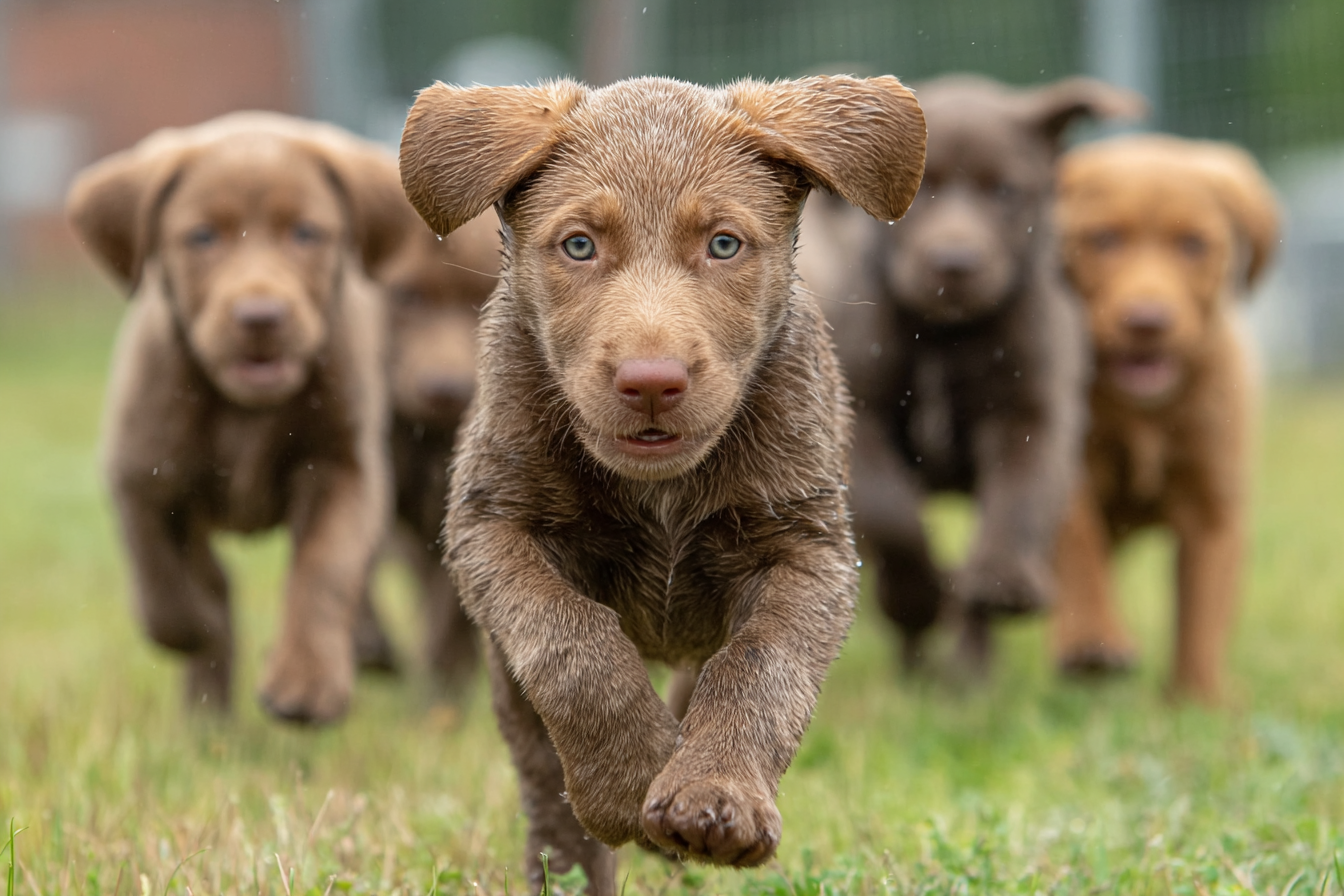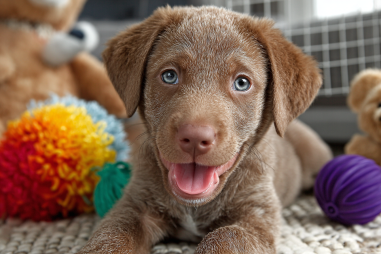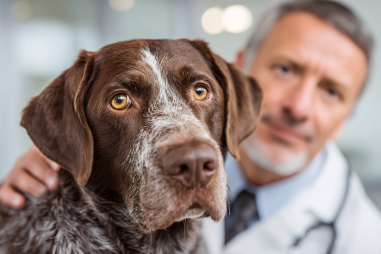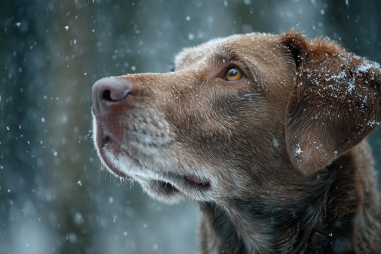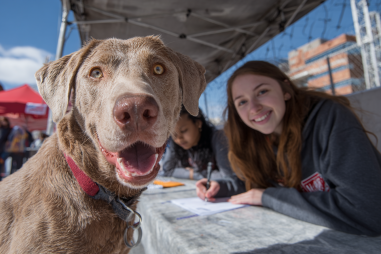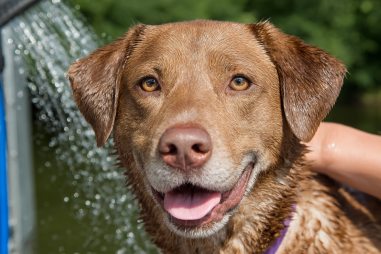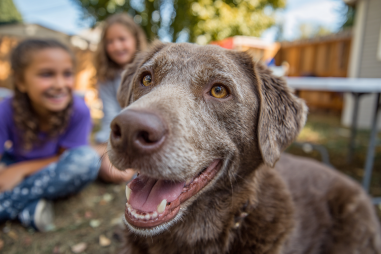Bringing home a Chesapeake Bay Retriever puppy is an exciting and rewarding experience. Known for their intelligence, loyalty, and versatility, these dogs can become beloved family members for life. One of the keys to raising a happy and well-adjusted Chesapeake Bay Retriever lies in proper socialization. By introducing your puppy to a variety of experiences early on, you’ll help shape their behavior, confidence, and ability to navigate the world with ease. In this article, you’ll discover essential socialization tips tailored specifically for Chesapeake Bay Retriever puppies that can pave the way for a well-mannered, sociable dog.
The Importance of Early Socialization
Early socialization is crucial because it sets the foundation for how your Chesapeake Bay Retriever will respond to different stimuli throughout their life. During the first three months, puppies go through a key developmental phase where their brains are especially receptive to new experiences. Proper exposure during this window can prevent fears, anxieties, and aggression later on.
Chesapeake Bay Retrievers are naturally alert and protective, which is a wonderful trait for a family and hunting companion. However, without proper socialization, these traits can develop into overprotectiveness or wariness towards strangers and unfamiliar animals. Early, positive experiences help your puppy learn to be curious and confident rather than fearful or shy.
Introducing Puppies to New Environments
One of the most important aspects of socialization is exposing your puppy to different environments. Begin with calm places such as your home, a friend’s house, or a quiet park. Gradually increase outing variety to places with more distractions and noises, like busy streets, dog-friendly stores, or outdoor events.
Each new environment introduces your puppy to unfamiliar sights, sounds, and smells, which trains them to cope calmly with change. Remember to keep these first adventures short and positive. Carry treats and toys to reward your puppy for brave and curious behavior, making these outings enjoyable rather than overwhelming.
Meeting Different People and Animals
Chesapeake Bay Retrievers need to meet a variety of people—from children and adults to people wearing hats or sunglasses. It’s important that these meetings are gentle and supervised, so your puppy learns that different people pose no threat.
In addition to humans, exposing your puppy to other animals is vital. Arrange playdates with well-mannered dogs, and if possible, allow supervised introductions to cats or other household pets. These social encounters teach appropriate interactions and communication skills, reducing the risk of future territorial behavior.
Always watch your puppy closely during these meetings for signs of stress or fear. If your puppy appears uncomfortable, calmly remove them from the situation and try again later with gentler introductions.
Socialization Exercises and Games
Incorporating socialization into playtime can be both fun and effective. Here are some engaging exercises and games to try:
- Name Game: Have different people gently call your puppy’s name and offer treats, so your puppy associates strangers with positive experiences.
- Obstacle Exploration: Set up simple obstacles like tunnels, low jumps, or ramps at home or in the yard. This encourages your puppy to adapt to new textures and shapes.
- Touch and Feel: Gently touch your puppy’s paws, ears, and tail regularly to get them used to being handled for grooming and veterinary visits.
- Group Play: Supervised play sessions with other puppies or dogs can improve social skills and teach bite inhibition through play biting.
These activities not only build social competence but also strengthen your bond, creating a happy and trusting relationship.
Handling Fear and Anxiety
It’s natural for puppies to feel scared or anxious in unfamiliar situations, but how you respond can make a big difference in how they learn to cope. If your Chesapeake Bay Retriever puppy shows signs of fear—such as cowering, trembling, or hiding—don’t force the interaction. Instead, use these approaches:
- Stay Calm: Your puppy picks up on your energy, so remaining calm and reassuring helps them feel safe.
- Use Positive Reinforcement: Reward brave behavior with treats, praise, and gentle petting to encourage confidence.
- Gradual Exposure: Slowly introduce the fearful stimulus in smaller doses over time, allowing your puppy to build tolerance at their own pace.
- Provide a Safe Space: Allow your puppy to retreat to a comfortable area, such as a crate or bed, if overwhelmed, ensuring they have control over their environment.
In cases of severe anxiety, consulting a professional trainer or behaviorist who understands the Chesapeake Bay Retriever’s temperament can provide personalized strategies.
Continuous Socialization for Adult Chesapeake Bay Retrievers
Socialization isn’t just for puppies. Adult Chesapeake Bay Retrievers benefit from ongoing exposure to new experiences, people, and animals to maintain their sociability and adaptability. Continue taking your dog to new places, meeting new friends, and participating in activities such as obedience classes, dog sports, or group walks.
Regular socialization helps prevent behavioral issues that can develop from boredom, fear, or isolation. It also keeps your dog mentally stimulated and strengthens your relationship over time.
Remember to always respect your dog’s comfort level and never push them into situations where they feel unsafe. Positive, consistent experiences will nurture a lifelong confidence in your Chesapeake Bay Retriever.
Setting Your Chesapeake Bay Retriever Up for Success
Socializing your Chesapeake Bay Retriever puppy properly requires dedication, patience, and kindness. By starting early and creating positive experiences through varied environments, meeting diverse individuals and animals, playing games, and addressing fears thoughtfully, you’re crafting a well-rounded companion.
Whether your dog becomes a hunting partner, a family friend, or both, these socialization tips ensure your Chesapeake Bay Retriever grows into a confident, happy, and well-mannered adult. Embrace the journey, and enjoy the special moments as your puppy explores the world by your side.

